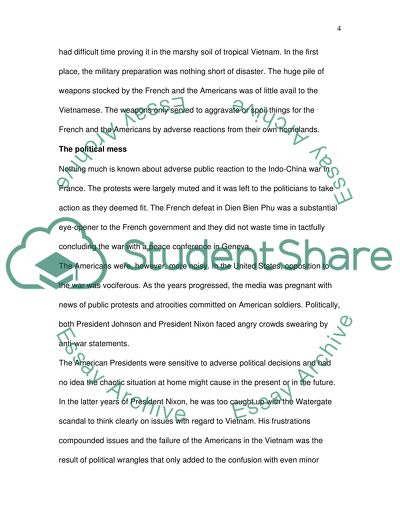Cite this document
(“History of the Vietnam Wars Essay Example | Topics and Well Written Essays - 1500 words”, n.d.)
Retrieved from https://studentshare.org/miscellaneous/1566234-history-of-the-vietnam-wars
Retrieved from https://studentshare.org/miscellaneous/1566234-history-of-the-vietnam-wars
(History of the Vietnam Wars Essay Example | Topics and Well Written Essays - 1500 Words)
https://studentshare.org/miscellaneous/1566234-history-of-the-vietnam-wars.
https://studentshare.org/miscellaneous/1566234-history-of-the-vietnam-wars.
“History of the Vietnam Wars Essay Example | Topics and Well Written Essays - 1500 Words”, n.d. https://studentshare.org/miscellaneous/1566234-history-of-the-vietnam-wars.


